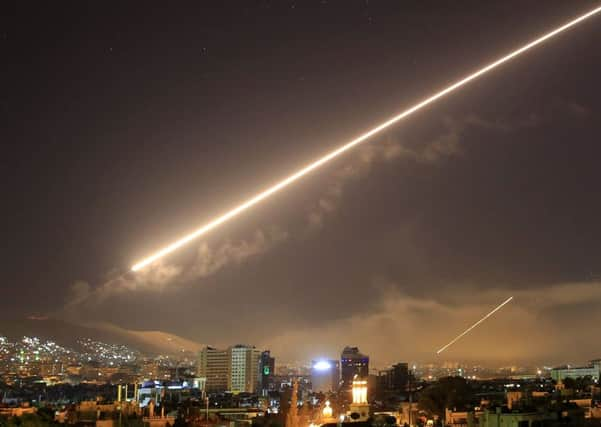Leader Comment: Jeremy Corbyn is wrong on Syria


The Labour leader yesterday said that he would only countenance the involvement of the United Kingdom in action in Syria if it had the authority of the United Nations.
Mr Corbyn’s supporters will regard this as simply more evidence of the wisdom of a man in whom they have invested so much. Those who take a different view will point to the fact that Syria’s greatest ally, Russia, has repeatedly used its power of veto against proposals of UN-backed action.
Advertisement
Hide AdAdvertisement
Hide AdThe logic of the leader of the opposition’s position is less then perfect. Is he really saying no amount of provocation by the regime of President Bashar al-Assad, no number of chemical weapons attacks on innocent civilians, would justify intervention unless Russia gave the go-ahead? Is President Vladimir Putin to be the final arbiter on the worth of any and all proposed UN actions in Syria? What about elsewhere in the world?
The leader of the opposition also issued a call for a new War Powers Act, which would allow parliament to hold Governments to account for military action.
Prime Minister Theresa May, having taken the decision to commit to British participation in Saturday morning’s strikes without consulting parliament, now finds herself under pressure to hand over some of her authority to MPs.
This is a step that should not be taken lightly. A Prime Minister must have the authority to take - and live with the consequences of - decisions on military intervention. There are times when it is entirely appropriate for MPs to have a say. Now is such a time. Having committed British forces to limited involvement, the Prime Minister has a duty to outline what, if anything, comes next.
There was, on Saturday morning, a specific objective and it appears to have been achieved. But if the destruction of three sites associated with the production of chemical weapons does not prevent the further use of them by the Assad regime, will there be further objectives? It is in Mrs May’s own interests for there to be as much clarity as possible around this issue. Sending British forces into action can, after all, be the undoing of Prime Ministers.